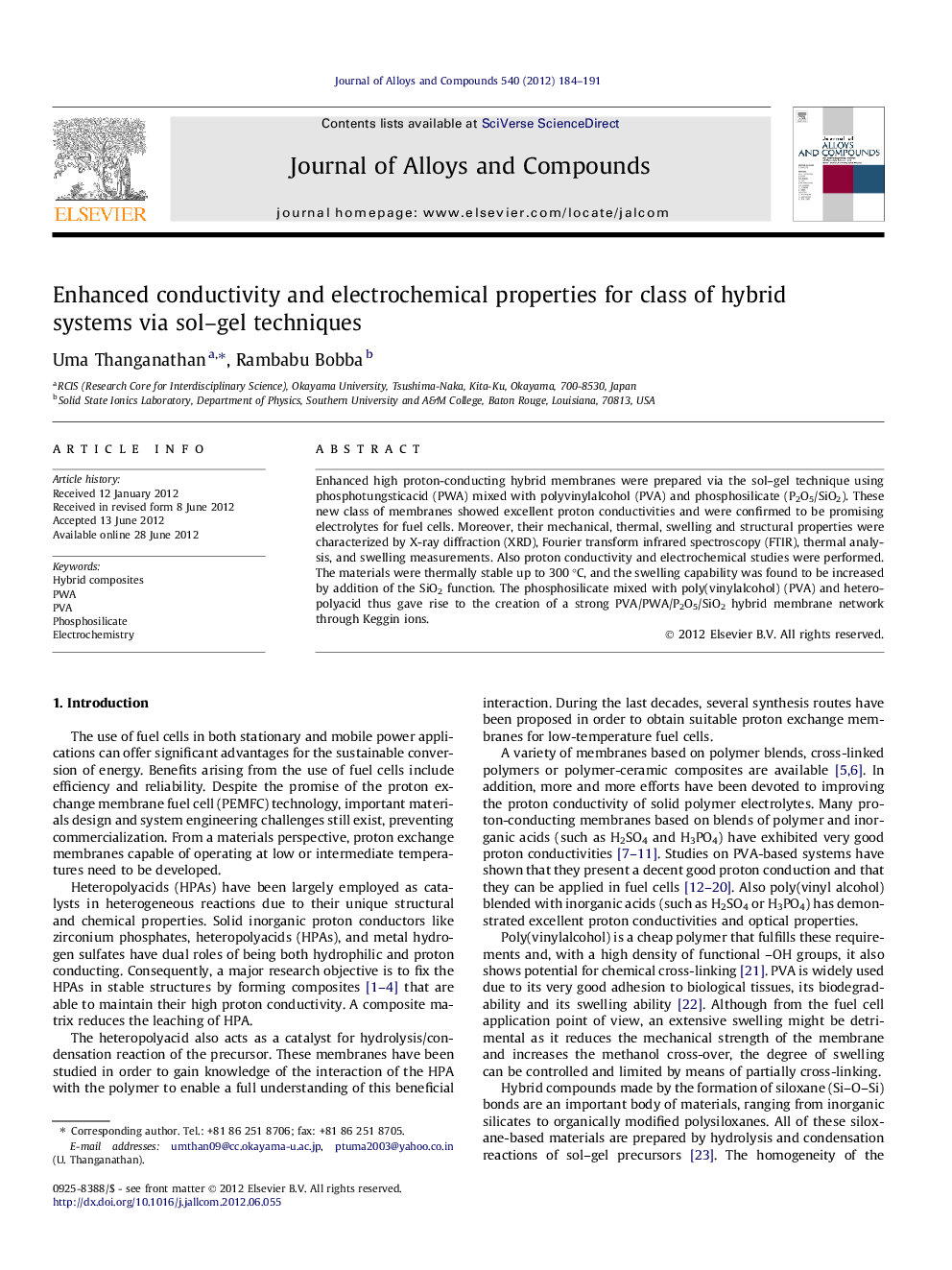| Article ID | Journal | Published Year | Pages | File Type |
|---|---|---|---|---|
| 1615528 | Journal of Alloys and Compounds | 2012 | 8 Pages |
Enhanced high proton-conducting hybrid membranes were prepared via the sol–gel technique using phosphotungsticacid (PWA) mixed with polyvinylalcohol (PVA) and phosphosilicate (P2O5/SiO2). These new class of membranes showed excellent proton conductivities and were confirmed to be promising electrolytes for fuel cells. Moreover, their mechanical, thermal, swelling and structural properties were characterized by X-ray diffraction (XRD), Fourier transform infrared spectroscopy (FTIR), thermal analysis, and swelling measurements. Also proton conductivity and electrochemical studies were performed. The materials were thermally stable up to 300 °C, and the swelling capability was found to be increased by addition of the SiO2 function. The phosphosilicate mixed with poly(vinylalcohol) (PVA) and heteropolyacid thus gave rise to the creation of a strong PVA/PWA/P2O5/SiO2 hybrid membrane network through Keggin ions.
► Less-expensive non-perfluorinated hybrid composite membranes were obtained by the sol–gel route. ► They were showed high proton conductivity at room temperature. ► The materials were thermally stable up to 300 °C. ► The fuel cell evaluation pointed at significant performances and endurance improvements.
